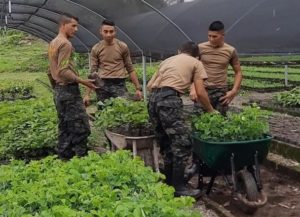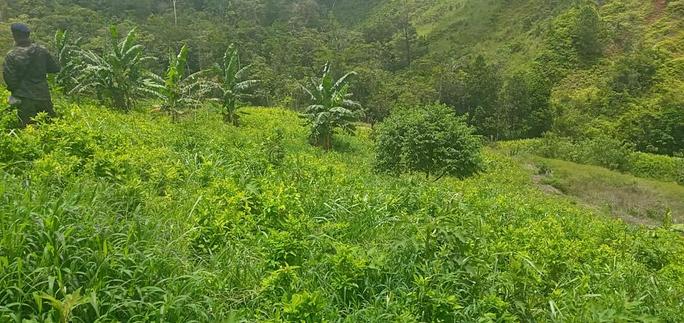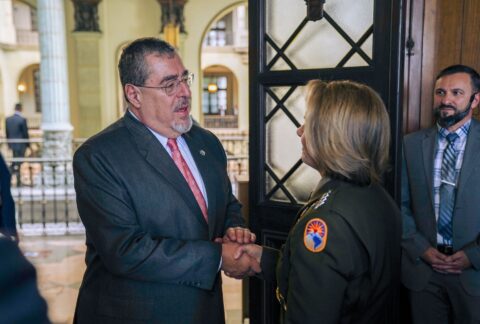Service members from El Salvador, Guatemala, Honduras, Nicaragua, and the Dominican Republic, members of the Central American Armed Forces Conference (CFAC), attended CFAC’s XI Specialized Environmental Activity held in Managua, Nicaragua, where they signed agreements for the protection of forested areas.
“These agreements will be reinforced by the task forces and special units in border areas,” Guatemalan Army Colonel Rubén Téllez, press director of the Ministry of Defense, told Diálogo on August 2. “In Guatemala there are two military units [the Special Jungle Operations Brigade and the Mountain Operations Brigade] that provide support to the Ministry of Defense, the Ministry of Environment and Natural Resources, the National Institute of Protected Areas, and the National Council of Protected Areas to safeguard forest resources.”
The designated task forces are the Morazán-Sandino Joint Force, on the Honduras-Nicaragua border; the Maya-Chortí Joint Force, on the Honduras-Guatemala border; and the Lenca-Sumpul Joint Force, on the Honduras-El Salvador border.
CFAC deems the preservation and recovery of forested areas a priority, as they sufferfrom natural disasters and/or criminal activities. The July 4-8 agreements will unite CFAC service members to protect these natural resources in the area.
“These agreements signed at the Managua meeting were to contribute to the fight against narcotrafficking, organized crime, and illegal logging,” Colonel Klaus Werner Korte Padilla, Honduras’ representative to CFAC, told Diálogo. “CFAC is already scheduling yearly updates of signed agreements.”
Illegal activities
For Col. Téllez, the biggest challenges facing CFAC are criminal activities related to narcotrafficking, such as deforestation to plant coca and marijuana.
The Guatemalan Army reported via Twitterthe eradication of 1.1 million coca bushesfrom January 1 to August 5, 2022.
In Honduras, Army Lieutenant José Antonio Coello, Honduran Armed Forcesspokesman, told Diálogo that authorities had seized more than 2.6 million coca bushes, which is more than 600 hectares of forest destroyed, from January to August 2022.

“In Honduras, illegal logging and timber trafficking are closely linked to narcotrafficking in the northeastern part of the country,” Insight Crime, an organization that studies organized crime in Latin America and the Caribbean, said. “Between 50 and 60 percent of the timber trade comes from illegal logging, and most of it comes out of forest reserves in northeastern Honduras.”
Forest fires in Honduras are another threat for authorities to overcome. According to the Honduran Forest Conservation Institute (ICF), as of July 2022 more than 42 percent of forest fires occurred in three departments: Francisco Morazán with 321, Gracias a Dios with 140, and Olancho with 136 fires.
Support in the face of threats
Meeting participants agreed to yieldseedlings to reforest damaged forests.
To support these initiatives, partner nations, such as the United States, through the U.S. Agency for International Development (USAID), are supporting the protection of the hemisphere’s environmental resources.
“In addition, through a comprehensive approach that contributes to biodiversity protection and sustainable forest management, [USAID] supports policies and legal frameworks that strengthen Guatemala’s Protected Areas System, enable long-term sustainable forest management, build an effective environmental justice sector, and engage communities whose livelihoods depend on healthy ecosystems and thriving forests,”Col. Téllez said.
In Honduras, USAID supported ICF to conduct a training workshop in the development and implementation of operational plans for technicians from the 12 forestry regions on the National Fire Protection and Strategy for Fire Use and Management program.
“The support of partner nations in partnership with government entities to reduce organized crime activities and improve the security of protected areas will improve the Army’s capability to address environmental crimes,” Col. Téllezconcluded.









